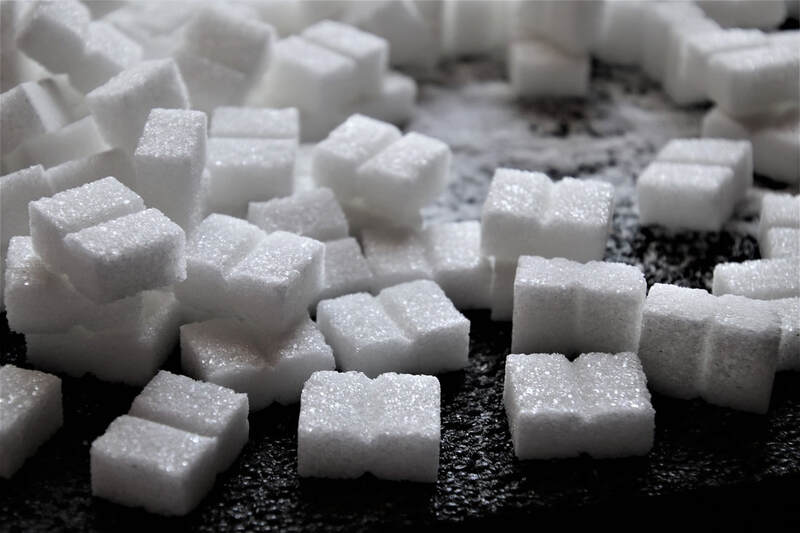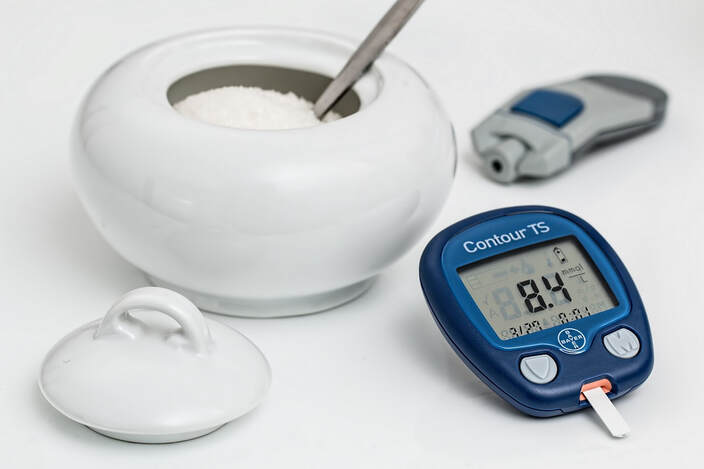Are Artificial Sweeteners Beneficial for Diabetics?
Artificial sweeteners are sugar substitutes that have a much sweeter taste than regular sugar. They are commonly used to reduce sugar intake and are popular substitutes for people with diabetes. Because these artificial sweeteners are so much sweeter than regular sugar, they are eaten in smaller amounts, decreasing the amount of sugar consumed. These substitutes are thought to decrease obesity and tooth cavities. Artificial sweeteners are used as sugar substitutes for people with diabetes mellitus, but are they actually that beneficial?
The common artificial sweeteners are ACE K, aspartame, sucralose, neotame and advantame, and saccharin. Aspartame is 200 times sweeter than sugar, and it does not have a bitter aftertaste like some of the other sweeteners, but it does have a small amount of calories. Netame and advantame are zero-calorie sweeteners, and are 7,000-13,000 times sweeter than sugar. These sweeteners are used for flavor enhancers such as dairy, fruit, citrus, and mint, and it is also used in milk products, frozen dairy, nonalcoholic drinks, and chewing gums. ACE K is a sweetener that has a bitter aftertaste and is 200 times sweeter than sugar. Saccharin is 300 times sweeter than sugar. Lastly, sucralose is the most common artificial sweetener, and it is 600 times sweeter than sugar, while also being a zero-calorie sweetener.. Most commonly, these sweeteners are found in chewing gum, table sweeteners, candies, soft drinks, baked goods, and dairy products.
Artificial sweeteners act in areas of the body that have receptor complexes, such as the mouth, intestine, colon, pancreas, and the brain. When these receptors are activated, insulin secretion and glucose absorption by the intestines are activated. Specifically, the cephalic phase of insulin secretion, which is the initial release of insulin, is activated by artificial sweeteners like saccharin. Sweet taste receptors are located in specialized cells in each organ, called islet cells. When there is a lot of artificial sweetener being consumed, these cells release large amounts of insulin. The intestines also play a large role in how artificial sweeteners affect the body by the microbiota. Aspartame, saccharin, and sucralose have been reported to negatively affect the composition of the microbiota. The ability of the intestines to absorb glucose is worsened by eating artificial sweeteners. The microbiota plays an important role in the development of glucose intolerance.
The common artificial sweeteners are ACE K, aspartame, sucralose, neotame and advantame, and saccharin. Aspartame is 200 times sweeter than sugar, and it does not have a bitter aftertaste like some of the other sweeteners, but it does have a small amount of calories. Netame and advantame are zero-calorie sweeteners, and are 7,000-13,000 times sweeter than sugar. These sweeteners are used for flavor enhancers such as dairy, fruit, citrus, and mint, and it is also used in milk products, frozen dairy, nonalcoholic drinks, and chewing gums. ACE K is a sweetener that has a bitter aftertaste and is 200 times sweeter than sugar. Saccharin is 300 times sweeter than sugar. Lastly, sucralose is the most common artificial sweetener, and it is 600 times sweeter than sugar, while also being a zero-calorie sweetener.. Most commonly, these sweeteners are found in chewing gum, table sweeteners, candies, soft drinks, baked goods, and dairy products.
Artificial sweeteners act in areas of the body that have receptor complexes, such as the mouth, intestine, colon, pancreas, and the brain. When these receptors are activated, insulin secretion and glucose absorption by the intestines are activated. Specifically, the cephalic phase of insulin secretion, which is the initial release of insulin, is activated by artificial sweeteners like saccharin. Sweet taste receptors are located in specialized cells in each organ, called islet cells. When there is a lot of artificial sweetener being consumed, these cells release large amounts of insulin. The intestines also play a large role in how artificial sweeteners affect the body by the microbiota. Aspartame, saccharin, and sucralose have been reported to negatively affect the composition of the microbiota. The ability of the intestines to absorb glucose is worsened by eating artificial sweeteners. The microbiota plays an important role in the development of glucose intolerance.
Image Source: stevepb
It has also been shown that artificial sweeteners cause weight and fat gain. ACE K and saccharin induce weight gain. Aspartame increases body weight and fat mass because of changes in energy efficiency, and this is associated with glucose intolerance and insulin resistance. A factor called FGF21 is known to decrease food intake and reduce obesity, and it is activated by glucose and fructose. It is not activated, however, by artificial sweeteners, which may be a reason as to why these lead to fat and body weight gain. Cardiovascular disease risk is also increased with artificial sweetener consumption as ACE K and sucralose are associated with coronary heart disease, and aspartate is associated with increased cerebrovascular disease .
Overall, research should take into consideration individual differences when looking at the effects of artificial sweeteners, such as the type of sweetener, the microbiota populations, and the duration of artificial sweetener intake. Based on the above research, artificial sweeteners may not be the most beneficial for people with diabetes mellitus.
Overall, research should take into consideration individual differences when looking at the effects of artificial sweeteners, such as the type of sweetener, the microbiota populations, and the duration of artificial sweetener intake. Based on the above research, artificial sweeteners may not be the most beneficial for people with diabetes mellitus.
Featured Image Source: pasja1000
RELATED ARTICLES
|
Vertical Divider
|
Vertical Divider
|
Vertical Divider
|






